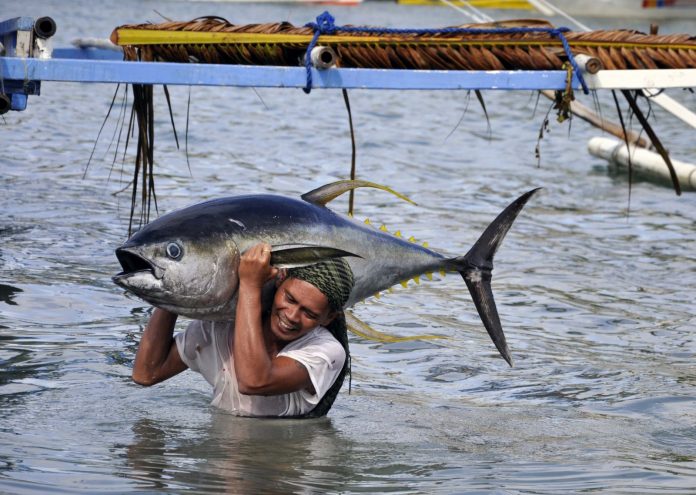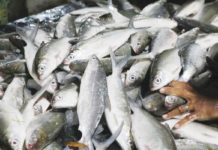
MANILA – Former Agriculture secretary William Dar on Saturday proposed the creation of a Department of Fisheries that will be independent of the Department of Agriculture to give more attention to and support for the sustainable development of the country’s fisheries and aquatic resources.
In his presentation during the Policy Summit on the Future of Fisheries at Green Sun Hotel in Makati City, Dar said for the past five years, the fisheries sector recorded negative growth – -0.15 percent in 2014, -1.96 percent in 2015, -4.18 percent in 2016, -1.73 percent in 2017, and -1.13 percent in 2018 despite having 220 million hectares of territorial waters including the exclusive economic zone, 750,000 hectares of inland waters (lakes, rivers, reservoirs), and a coastline of 17,460 kilometers.
The Philippines is considered a highly-biodiversed country being at the center of the Coral Triangle, which has now been recognized as the global center for marine biodiversity.
However, Dar said malnutrition and poverty still exist in many parts of the country particularly in coastal communities and that small fisherfolk still belong to the “poorest of the poor”.
This is because the country’s inland and coastal waters are degraded and overfished, and there is “limited” fund for the development of the fishing industry such as the putting up of post-harvest facilities like cold storage facilities, he noted.
Dar said there is also the problem with “restricted” undertaking of research and development (R&D) by the Bureau of Fisheries and Aquatic Resources (BFAR) as in the case of the Philippine Rise (formerly called the Benham Rise), which has the potential that could make the country one of the top exporters of marine products in the world.
“Up to now, the Philippine Rise issue is usually treated from a political standpoint than scientific and economic. If BFAR had enough funds to conduct more R&D on the Philippine Rise, we would have known how much potential that area has economically, and crafted programs to harness the resources there in a sustainable manner,” he said.
Dar said the vision and mission of the proposed Department of Fisheries is to harness the R&D and science-based solutions to address wide-ranging poverty especially among small fisher folk and their communities.
Creating an entrepreneurial ecosystem for marine, fisheries, and aquaculture taking sustainability into account is also essential, he said.
“Generating enough supply of both raw and value-added products from the sea and inland waters should (also) be one of the major outputs of the agency’s programs, enabling the country to export more marine products besides supplying the domestic market,” he added.
Dar said there is an urgent need to create the Department of Fisheries to arrest the progressive decline of fish catch of both municipal and commercial fishers, and to protect and rehabilitate the country’s coral reefs, mangroves, seagrass and algae beds, which are essential for fish population to grow.
“We need to have the appropriate fisheries policies, management systems and institutions in place. Additional efforts to strengthen the management capabilities of LGUs (local government units), NGOs (non-government organizations), and local communities whose participation and cooperation are pivotal in natural resources management,” he said.
Better coordination among agencies for the proper enforcement of fisheries rules and regulations also plays an important role in the development of the fisheries sector, he added. (PNA)



